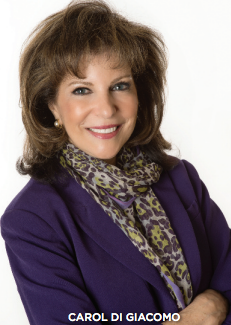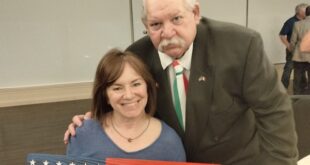 While divorce usually involves enlisting a lawyer, it need not descend into the kind of backbiting and mayhem often seen in Hollywood films (or Hollywood marriages for that matter). In fact, a few lawyers specialize in Collaborative law — a powerful, voluntary alternative to traditional divorce litigation where the parties and their attorneys work together as a team to achieve a fair outcome for all.
While divorce usually involves enlisting a lawyer, it need not descend into the kind of backbiting and mayhem often seen in Hollywood films (or Hollywood marriages for that matter). In fact, a few lawyers specialize in Collaborative law — a powerful, voluntary alternative to traditional divorce litigation where the parties and their attorneys work together as a team to achieve a fair outcome for all.
“Although my firm does a significant amount of litigation, we are more oriented toward Collaborative law and alternative dispute resolution,” says Carol Di Giacomo of Di Giacomo & Somers L.L.C, a Northfield-based law firm that specializes in family law with a focus on a Collaborative law approach. “We work on problem-solving to achieve an outcome that addresses the needs and interests of the entire family. It’s about arriving at an equitable resolution that the entire family can live with. It’s a great way to practice family law; it’s much less disruptive and toxic than litigation.”
If it sounds like a new wrinkle in the practice of family law, it is, relatively speaking. With roots that date back to the 1990s, Collaborative law first came to Illinois 11 years ago. Its goal is to avoid the uncertain outcome of court proceedings and achieve a fair resolution by engaging opposing sides in working together toward a settlement based on their respective needs and interests, without destroying the family unit. To that end, the process incorporates mental health specialists, parenting specialists and financial experts who help create dialogue and ensure a sense of harmony going forward.
That’s right — harmony. When a husband and wife part ways, they still need to work together, or at least work cooperatively, after the split. “Sometimes divorce law is like a chess game: The person with the most money and power can win. But in seeking to ‘win,’ you can lose sight of what you are there for: to equitably divide up the marital estate and to help the parties move forward in their new lives,” says Di Giacomo.
The Collaborative process can help the parties create a new relationship and family dynamic as they move forward. “Parties should keep in mind that they may be getting divorced, but they will be parents and grandparents together, for the rest of their lives,” she points out.
Di Giacomo, whose parents are of Calabrian and Sicilian lineage, has been practicing law for 31 years, and her expertise is broad. While she concentrates primarily in family law, including divorce and custody cases, her firm also handles estate planning, real estate law and bankruptcy filings. She particularly enjoys Collaborative law and she certainly excels in it.
“With the Collaborative process, it’s not about winning at all cost, but rather achieving the best results for all involved,” Di Giacomo says. “Collaboration is a transparent process, and the parties are in control of their own divorce. They do not seek court intervention and, as a result, must decide upon how and when to compromise, which is often less difficult when they can hear and fully understand their spouse’s rationale.
“You need to know your rights and options when choosing a process that fits your needs, and the Collaborative process may not work for everybody,” she notes. “But if parties can work cooperatively, it’s better for the family. It enables parties going through a difficult divorce to better understand and to maintain some sense of respect for one another.”
Di Giacomo & Somers L.L.C
191 Waukegan Road, Suite 104
Northfield, IL 60093
847-999-4498
www.digiacomo-somers.com
 Fra Noi Embrace Your Inner Italian
Fra Noi Embrace Your Inner Italian





